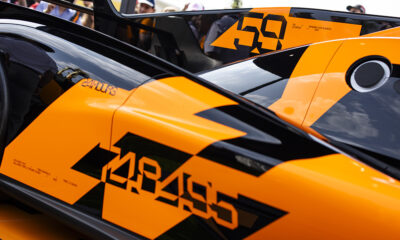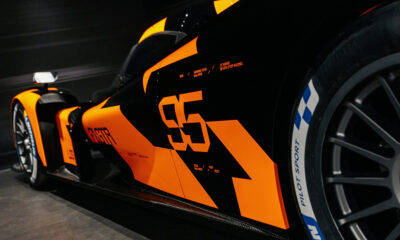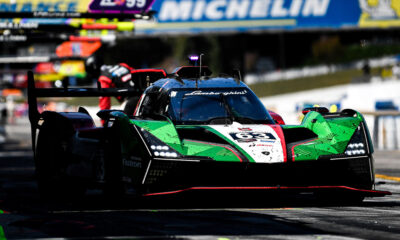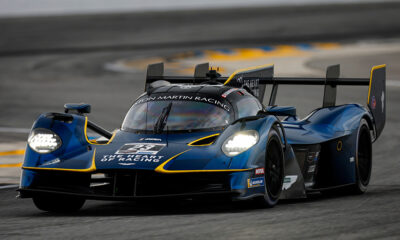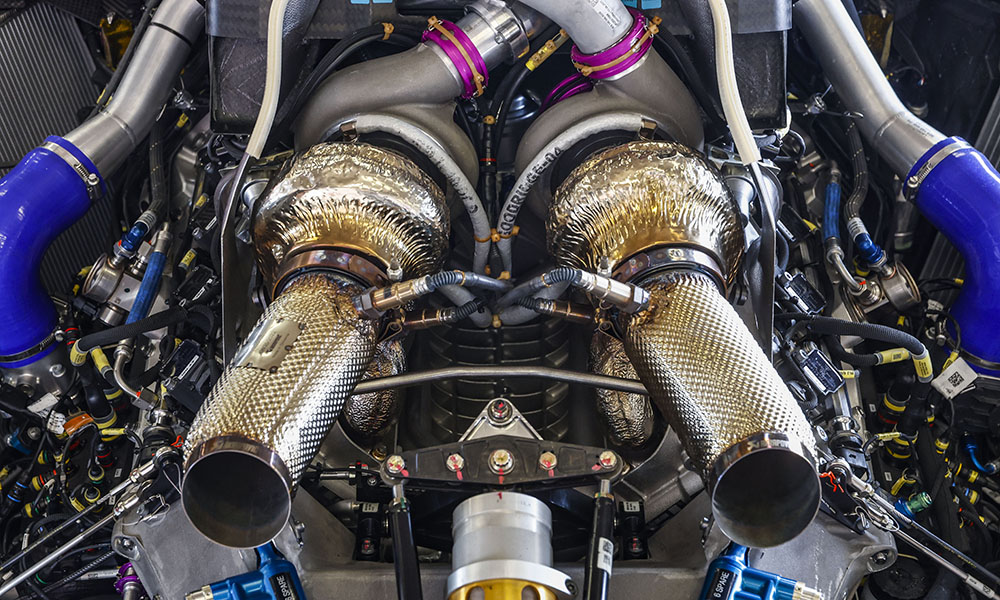
Photo: Juergen Tap/Porsche
Porsche will not introduce a new 90-degree crankshaft for its 963 prototype until after this year’s 24 Hours of Le Mans according to Porsche LMDh factory director Urs Kuratle, who cited multiple reasons for sticking with its current powertrain configuration for at least the first half of this year.
The German manufacturer has been developing a new crank that’s aimed at reducing engine vibrations, which had a knock-on effect in the reliability of the spec LMDh hybrid system in the car’s first seasons in the FIA World Endurance Championship and IMSA WeatherTech SportsCar Championship.
Kuratle, however, revealed that a hardware update to the Bosch-supplied MGU unit for this year has appeared to have helped the 963’s reliability, as proven by its victory in last month’s Rolex 24 at Daytona, which saw all four of its cars finish inside the top-six.
That, along with a requirement by the FIA and ACO to introduce the update by the Imola WEC round, in order to have two races’ worth of data prior to Le Mans for Balance of Performance purposes, has led to Porsche sticking with its current package for the French endurance classic.
“We do not run [the new crankshaft] in Le Mans,” Kuratle told reporters in Qatar.
“A decision is done… by the governance bodies, both of them, IMSA and the ACO, they set the clear targets of how we have to implement those, the crankshaft, and that won’t allow us to do it before Le Mans.
“We have to decide that we concentrate all our endurance runs, prior to Le Mans, with the old crankshaft. We would not get enough mileage on the new one.”
Should Porsche have introduced the engine update at Imola, it would have had to have done so, per LMDh rules, simultaneously in the WeatherTech Championship, which races at Long Beach that same weekend.
It would have resulted in all nine of its active factory or customer cars needing the new crank at the same time.
“We would have had to implement it in Imola, and I’m not saying that’s a bad decision,” Kuratle said.
“There was a clear communication from the governance bodies from the beginning on and we said, ‘OK, we try to do it. It’s a challenge.’
“Now we have to say that the risk is too big.”
Kuratle said the results in Daytona helped sway their decision to postpone the rollout until later in the year.
“As far as I know, all of the GTPs in IMSA ran without problems on the hybrid system [at Daytona],” he said.
“That made us, having all four 963s in the top-six in Daytona, that fact also helped the decision for us to postpone the [engine update].
“We saw that we can make a 24-hour race, by the good statistics, of having all four cars finishing, that’s the thing.”
He added: “We still want to introduce it and we will still try to do it this year.
“The ball is on our side now. We have to come up with a new date to introduce it and we have the boundaries from the governance bodies and we have to try to comply to it.
“Once we have the whole concept we have to go again to the governance bodies. We announce a new date.
“They have to approve it, whether or not we’re allowed to introduce it, but it pretty much looks like it’s expected to be allowed.
“Then we have to change all the customers’ [engines], all the spare engines, etc to the new crank and introduce it at whatever date we come up.
“That date is not set yet. We really have to see.”
Kuratle, who said the change will “probably” result in the use of an EVO Joker, revealed that the 90-degree crank, which replaces the current 180-degree flat-plane crank in the 4.6-liter V8 twin-turbo powerplant, has resulted in a noticeably different engine sound.
“The block is the same,” he explained. “You exchange the crankshaft and install it again and that’s it. There’s some software involved.
“It is a nice sound, from what we hear on the dyno.
“Maybe now we have more of a typical Porsche sound, as it is now, the sound will change, for the good or for the bad.”
Davey Euwema contributed to this report




















